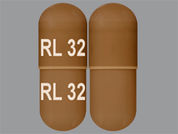Before taking isotretinoin, tell your doctor or pharmacist if you are allergic to it; or to vitamin A-related drugs (other retinoids such as tretinoin); or if you have any other allergies. This product may contain inactive ingredients (such as soybean, parabens), which can cause allergic reactions or other problems. Some people who are allergic to peanuts may also be allergic to soy. Talk to your pharmacist for more details.
Before using this medication, tell your doctor or pharmacist your medical history, especially of: diabetes, family or personal history of high blood fats (triglycerides), mental/mood problems (such as depression), liver disease, obesity, eating disorders (such as anorexia nervosa), alcohol abuse, pancreatitis, bone loss conditions (such as osteoporosis/osteomalacia, decreased bone density).
Do not donate blood while you are taking isotretinoin and for at least 1 month after you stop taking it.
This medication may make you more sensitive to the sun. Limit your time in the sun. Avoid tanning booths and sunlamps. Use sunscreen and wear protective clothing when outdoors. Tell your doctor right away if you get sunburned or have skin blisters/redness.
Isotretinoin can affect your night vision. Do not drive, use machinery, or do anything that needs clear vision after dark until you are sure you can perform such activities safely.
If you wear contact lenses, you may not tolerate them as well as usual while using this medication. Contact your doctor for more information.
Do not have cosmetic procedures to smooth your skin (such as waxing, laser, dermabrasion) during and for 6 months after isotretinoin therapy. Skin scarring may occur.
Avoid the use of alcohol while taking this medication because it may increase the risk of certain side effects (such as pancreatitis).
Limited information suggests isotretinoin may cause some bone loss effects. Playing contact or repetitive impact sports (such as football, basketball, soccer, tennis) may result in bone problems, including an increased risk of broken bones. Limited information also suggests isotretinoin may stop normal growth in some children (epiphyseal plate closure). Consult your doctor for more details.
Older adults may be more sensitive to the side effects of this drug, especially the effects on bones.
Children may be more sensitive to the side effects of this drug, especially back/joint/muscle pain.
This drug must not be used during pregnancy or by those who may become pregnant during treatment. If you become pregnant or think you may be pregnant, inform your doctor right away. See also Warning section.
Since this drug can be absorbed through the skin and lungs and may harm an unborn baby, women who are pregnant or who may become pregnant should not handle this medication or breathe the dust from the capsules.
You must have two negative pregnancy tests before starting this medication. You must have a monthly pregnancy test during treatment with isotretinoin. If the test is positive, you must stop taking this medication and consult your doctor right away.
It is unknown if this medication passes into breast milk. However, similar drugs pass into breast milk. Breastfeeding is not recommended while using this medication. Ask your doctor when you can breastfeed after stopping treatment. Consult your doctor before breastfeeding.

